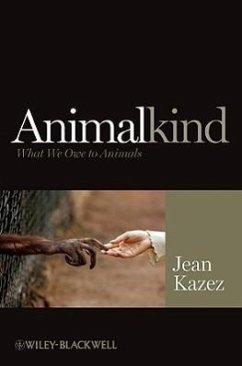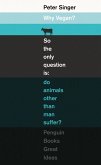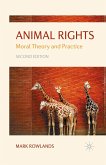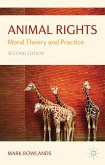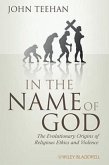Animal lovers in today's world are a curious breed. Many dote on their dogs and cats, demand equal rights for horses and apes - and then happily devour pigs and chickens. So how are we truly supposed to think of and treat animals? Animalkind:What We Owe to Animals explores the crucial ethical differences between humans and animals. Occupying the middle ground between extreme egalitarianism and outright dismissal, the book instead advocates a position of respect for animals, treatment not afforded to the current inhabitants of factory farms and animal labs. Starting from the beginning, when animals were first used as resources, Kazez takes us on a fascinating journey through the history of animal exploitation. After illustrating how the relatively benign exploitation of animals became malignant, she reveals the startling fact that livestock and feedcrops now occupy a full third of the earth's land surface. With so many animals at our mercy - and the environment hanging in the balance - there is more reason than ever to take a fresh look at our complex and contradictory relationship with animals. While providing a serious philosophical discussion of a sensitive issue, the book also covers lighter topics, from Descartes's dinner menu to Montezuma's albino zoo and the author's personal dietary struggles. Animalkind ultimately urges us to revere all forms of life, the human kind as well as the animal kind, while respecting important differences.
Hinweis: Dieser Artikel kann nur an eine deutsche Lieferadresse ausgeliefert werden.
Hinweis: Dieser Artikel kann nur an eine deutsche Lieferadresse ausgeliefert werden.
"Kazez has many highly plausible things to say. The fascinating spectrum of animal capacities is brought to the fore, and the reader is quickly convinced that even if they are instinctual, animals are also highly cognitive creatures, capable of thinking, feeling and awareness. The arguments she presents are intelligent and convincing. Kazez writes in an enjoyable and accessible fashion, and wit and humour are used generously. Combined with many fruitful arguments, this makes the book a good read for anybody curious about whether it is, indeed, morally justifiable to eat one animal and love another." -- Times Higher Education, April 2010
"What's the right way to look at animals? Kazez ... examines this moral dichotomy in the new entry in Blackwell's Public Philosophy series. In examining the human-animal divide in indigenous myth and in philosophers' thoughts ... Kazez brings the reader to a central question: are humans and animals on two different moral planes? In well-written prose, the author navigates the minefields of different philosophers' takes on the value of animals and of whether or not people and animals are of equal value. What difference does it make to save one individual animal or for one person to decided to follow a vegetarian lifestyle? With a well-annotated bibliography, this is an excellent place to begin a trek through the thorny issue of animal rights." -- Nancy Bent for Booklist Online, February 2010
"Recent philosophers say that animals are like us ... and we must therefore treat them with the respect owed to human beings. Jean Kazez explores a middle path between these views in her book, Animalkind. Animals aren't just things ... we have to treat them with all due respect ... . It's complicated, and you have to think things through carefully, case by case. Kazez takes the world's ragged edges seriously. The result is a readable, compelling, and thought-provoking account of our difficult relationship to animals.Kazez sees many shades of grey, all the while guided by a certain notion of respect. Kazez knows that we struggle to be good,and it's not an all-or-nothing affair. It's the effort of a philosopher doing honest work in the world." -- James Garvey for The Philosopher's Magazine, March 2010
"In this cogently argued book, Kazez explores how we should treat other animals. The central theme is respect. Kazez takes a fresh, often funny, look at difficult issues." -- BBC Wildlife Magazine, February 2010
"What's the right way to look at animals? Kazez ... examines this moral dichotomy in the new entry in Blackwell's Public Philosophy series. In examining the human-animal divide in indigenous myth and in philosophers' thoughts ... Kazez brings the reader to a central question: are humans and animals on two different moral planes? In well-written prose, the author navigates the minefields of different philosophers' takes on the value of animals and of whether or not people and animals are of equal value. What difference does it make to save one individual animal or for one person to decided to follow a vegetarian lifestyle? With a well-annotated bibliography, this is an excellent place to begin a trek through the thorny issue of animal rights." -- Nancy Bent for Booklist Online, February 2010
"Recent philosophers say that animals are like us ... and we must therefore treat them with the respect owed to human beings. Jean Kazez explores a middle path between these views in her book, Animalkind. Animals aren't just things ... we have to treat them with all due respect ... . It's complicated, and you have to think things through carefully, case by case. Kazez takes the world's ragged edges seriously. The result is a readable, compelling, and thought-provoking account of our difficult relationship to animals.Kazez sees many shades of grey, all the while guided by a certain notion of respect. Kazez knows that we struggle to be good,and it's not an all-or-nothing affair. It's the effort of a philosopher doing honest work in the world." -- James Garvey for The Philosopher's Magazine, March 2010
"In this cogently argued book, Kazez explores how we should treat other animals. The central theme is respect. Kazez takes a fresh, often funny, look at difficult issues." -- BBC Wildlife Magazine, February 2010

